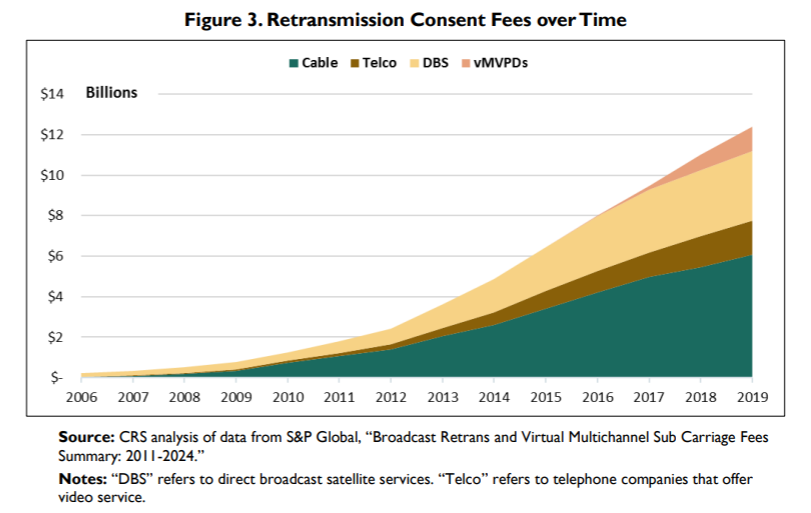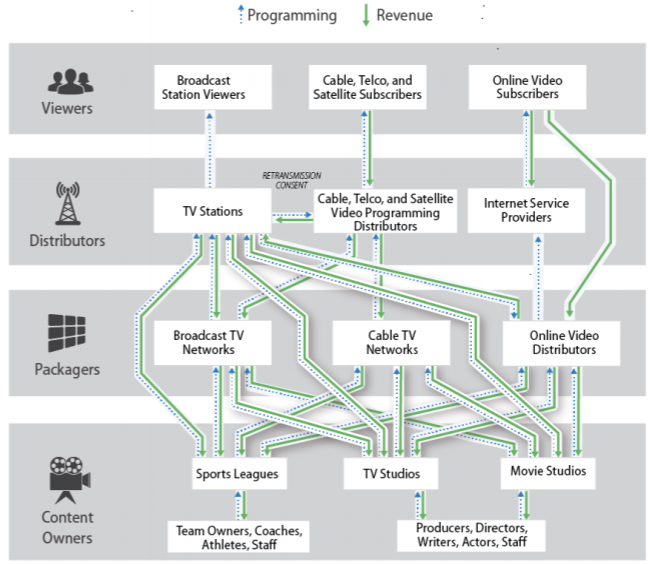CRS Report Connects Dots Between STELAR Sunset and Blackouts
The smarter way to stay on top of the multichannel video marketplace. Sign up below.
You are now subscribed
Your newsletter sign-up was successful
The Congressional Research Service has released a report on STELAR re-authorization and related TV carriage issues, and while it is primarily a primer on the law and various bills to reauthorize it, it also suggests that if the law sunsets, more retrans blackouts would likely ensue.
STELAR provides for the compulsory license that allows satellite operators to import distant network affiliated TV stations into markets that lack them and for the provision that requires all MVPDs and TV stations to negotiate retransmission consent in good faith.

Related: Senate Takes Long Look at STELAR
CRS "provides policy and legal analysis to committees and Members of both the House and Senate, regardless of party affiliation.”
In the report, the author's summary concludes with a dotted-line connecting the dots between sunset and blackout.
Dot 1) "If both the Copyright and Communications Act provisions of the STELA Reauthorization Act expire, broadcast station owners would likely have greater advantage in negotiating with cable, telco and satellite operators than they do currently," the report said. The good faith bargaining requirement is one of the provisions.
Dot 2) "When broadcast station owners and cable, telco and/or satellite operators do not reach retransmission consent agreements, the station owners may “black out” their signals," it said.
The smarter way to stay on top of the multichannel video marketplace. Sign up below.
Dotted line) "If Congress does not renew the FCC’s mediation role and retransmission consent disputes were to become more frequent, cable, telco, and satellite subscribers could experience more interruptions of broadcast television programming."
That is the argument MVPDs have been making for retaining the good faith provision.

The report features some clip-and-save elements, including a timeline for the two-decade-long process of renewing STELAR, which expires every five years, and a summary of the current legislative efforts in the House and Senate to renew it, or alternatively, provide a glide path for eliminating the compulsory license.
Contributing editor John Eggerton has been an editor and/or writer on media regulation, legislation and policy for over four decades, including covering the FCC, FTC, Congress, the major media trade associations, and the federal courts. In addition to Multichannel News and Broadcasting + Cable, his work has appeared in Radio World, TV Technology, TV Fax, This Week in Consumer Electronics, Variety and the Encyclopedia Britannica.

